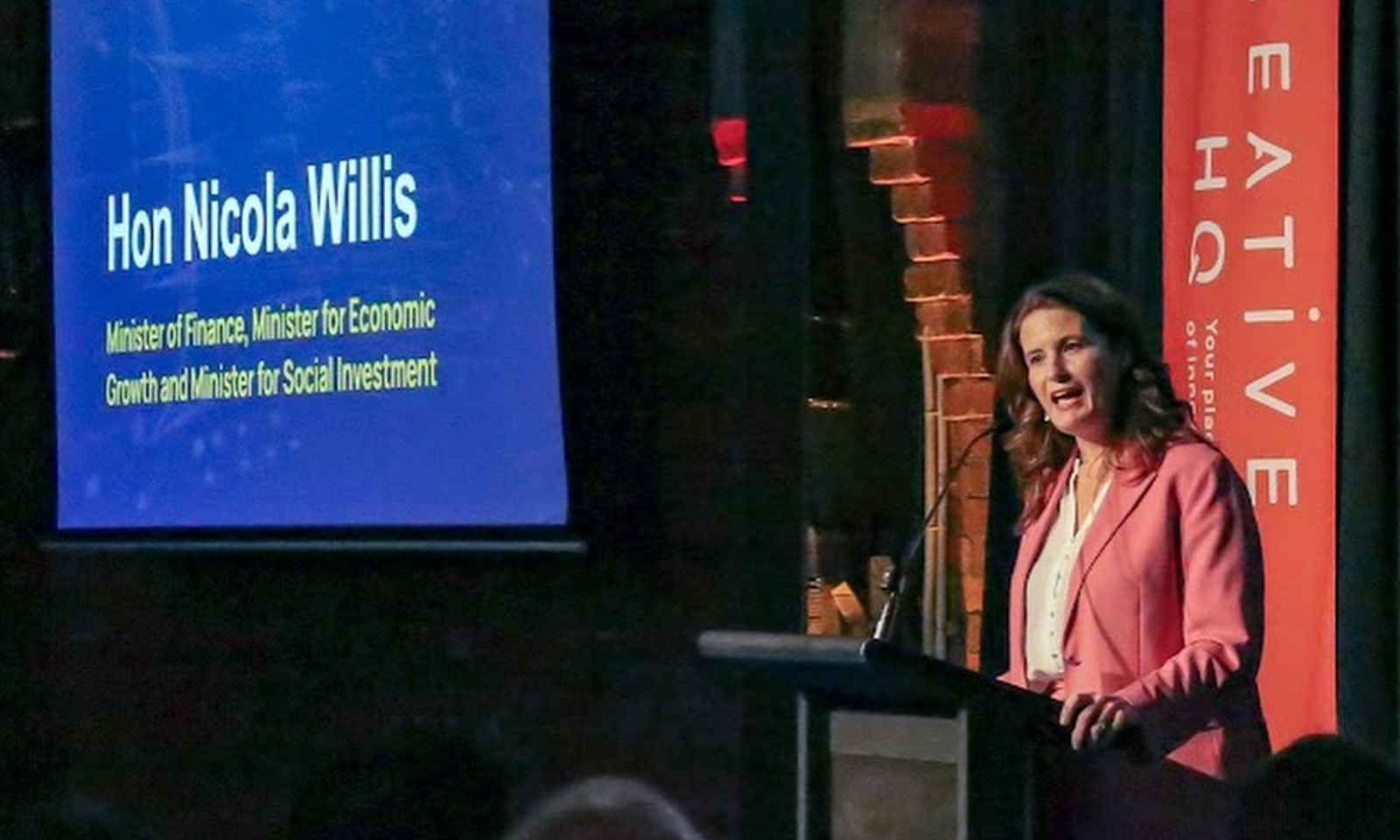

Brooke Pao Stanley (left) and John Loau debate the merits of changes to pay equity claims, ahead of next week's Budget.
Photo/Composite
‘Underpaid and undervalued’: Pay equity changes spark controversy
As the Government prepares for Budget 2025, advocates warn that tightened eligibility could further disadvantage women and low-paid workers.



‘Shot put queen’ Dame Valerie Adams leads Pacific pride at NZ's Halberg Awards 2026

Pacific digital-finance push continues despite global crypto volatility



Fiji fast-tracks needle programme as new study shows HIV cases surging at record pace

‘Shot put queen’ Dame Valerie Adams leads Pacific pride at NZ's Halberg Awards 2026

Pacific digital-finance push continues despite global crypto volatility

The Government’s decision to tighten eligibility for pay equity claims has sparked sharp criticism from community advocates, warning that it will disproportionately affect Pacific women and low-paid workers.
Brooke Pao-Stanley, spokesperson for Manaaki Rangatahi, expressed her disagreement with the changes during an interview with William Terite on Pacific Mornings.
She says that in sectors predominantly comprised of women, the government’s decision sends a clear message that their “work is undervalued”, further entrenching this perspective.
Workplace Relations Minister Brooke van Velden has initiated changes to tighten the thresholds for claims in sectors historically seen as undervalued.
As a result, 33 active claims for roles, including nurses, librarians, and aged care workers, have been put on hold.
She told RNZ that claims have been advancing without robust evidence of undervaluation, and broad claims were making it challenging to determine if pay discrepancies were due to sex-based discrimination or other factors.
John Loau, a committee member of the Pacific Blues, refutes the narrative that the Government does not care about protecting women's rights, saying, “Point to someone that has lost their pay since the changes have made that's a woman, and no one can point that out.
“All they're doing is clarifying and making sure that the pay equity system works better,” he says. “They budgeted money and probably have more money set aside, with the anticipation that other pay equity claims are going to be put through, and the government is encouraging women and others to put their claims through.”
But Pao Stanley criticises the Government’s cost-cutting rationale, arguing that changes can happen whenever it aligns with political agendas.
Watch the full interview on Pacific Mornings below.
“They keep using this narrative to say, ‘We need to balance the books, we need to save money, we need to do all of these things to justify taking money from communities that need it the most’,
“The Government can access all the money and resources they need, and that was evident during Covid when things literally changed overnight, when they were able to house everybody, when they introduced services at a different level, at a high trust level, when they actually implemented the wage subsidy.”
A decision impacting some more than others
Pao-Stanley says the Government’s actions reveal their true loyalties.
She claims they are diverting resources from marginalised communities that are already disadvantaged and underpaid.
“I think that kind of speaks to this wider narrative about their agenda, which is actually just protecting wealth, looking to introduce privatisation of services across the board, and actually making living conditions extremely harder for those communities.”

The pay gap for Pacific women in 2024. Image/Equal Employment Commission
Data from public services show that Pacific women earn 20.9 per cent less than their average male counterparts.
During the third reading of the Equal Pay Amendment Bill, Labour Party Deputy Leader Carmel Sepuloni described the changes as a harsh blow from the Coalition Government.
“What they have said is to all the teacher mums, all the social worker mums, all the mums out there that are carer and support workers is that you cannot expect to get pay equity under us or in fact for the next 10 years, and you will continue to fall behind your male counterparts and you cannot expect to be paid fairly. “
Looking ahead
The Government is set to announce the annual Budget on 22 May. Finance Minister Nicola Willis has indicated that the focus will be on stimulating economic growth, alleviating the cost of living, and restoring business confidence.

Finance Minister Nicola Willis announced the operating allowance for the upcoming Budget will be slashed from $2.4 billion to $1.3 billion. Photo/Nicola Willis Facebook
Some pre-announcements include $2 billion for navy helicopters, $100 million for a venture capital fund, and $190 million for a Social Investment Fund to support 20 social services, including early intervention for autism and youth offending, hapu-led projects, and parenting programmes.
During a recent press announcement, Willis described the Social Investment Fund as a “force for enduring change”, which aims to invest in targeted early interventions. This approach “not only makes a difference in the lives of... whānau, but means the Government reduces the money it might otherwise have spent on treating the symptoms rather than the cause of dysfunction."
Loau says cost deductions for landlords, including himself, were beneficial in the previous budget, and he hopes to see more Pacific homeowners.
Pao Stanley agrees, saying the low home ownership rates are among Pacific communities, but poses the question, “How are we going to do that, given the current state of our wages?”

Homeownership is a distant dream for many low-income households. Photo/File